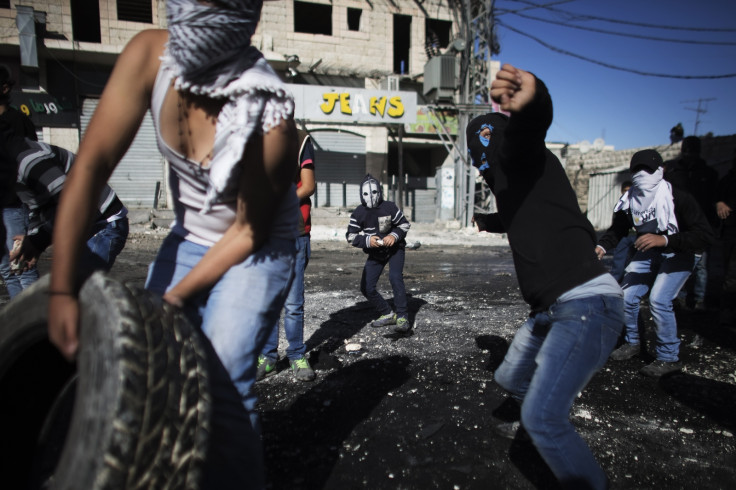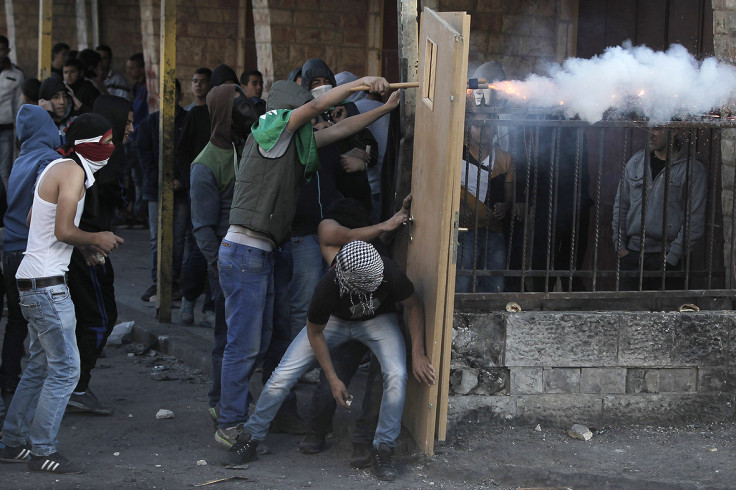Israel-Palestine Conflict: Has the 3rd Intifada Begun?

Spend even a little time in Israel over the past decade and you will have heard the phrase "3<sup>rd Intifada" countless times. Like the boy who cried wolf, the danger now is that the Israeli public is immune to warnings of its imminent arrival. There are strong reasons to believe the violence in Jerusalem last week and seemingly spreading across Israel is the start of an uprising of some kind.
Intifada is a phrase that haunts generations of Israelis, evoking memories of a time when security in Israel's cities was a luxury. Bus bombings, nightclub attacks, random stabbings and shootings shattered the peace of Tel Aviv's metropolitan bubble. Even during the two recent conflicts in Gaza, Tel Aviv felt comparatively safe.
I've only seen Tel Avivians truly shaken once: not when Hamas rockets reached the city during 2013, but in the wake of the bus bombing on the penultimate day of that conflict. They were shaken not by the blast itself, but by what it represented: a return to the paranoia of the 2<sup>nd intifada, when each daily commute could be your last.
The volume of those whispering "intifada" is increasing. Commentators are increasingly insistent that the spate of politically motivated attacks all point to a new uprising. Traditionally, scaremongering by the media would be met by that nonchalant Israeli shrug. But Israelis need to feel differently this time. The stabbing of an IDF soldier in broad daylight by one of the busiest train stations in Israel is straight from the 2<sup>nd Intifada playbook.
Israelis living in settlements have been targeted before – it was after all the kidnapping of the three teenagers from the West Bank that led to Operation Defensive Shield. But the callousness and brutality of Sunday's murder of 26-year-old Dalia Lemkus was particularly shocking, and reawakened the memories of some of the darkest moments of the 2<sup>nd Intifada.
The stabbing of an IDF soldier in broad daylight by one of the busiest train stations in Israel is straight from the 2nd Intifada playbook.
Some argue that, as tragic as these individual murders are, they cannot been seen to be part of a "traditional" intifada or "uprising". After all there are no crowds in the streets. The mob is yet to be awakened, and the West Bank remains relatively quiet. But the troubling sense of déjà vu visiting Israel is helped by the words and inaction of the political players.
President Abbas' speech at the UN, and negotiator Saeb Erekat's use of the word genocide this month has raised the pressure in an already fraught environment. Tensions in the refugee camps were already at breaking point, with security sources whispering that the PA authority had effectively lost control and had often even refused to enter the camps, and certainly not arrest anyone.

Who is responsible for this?
Many on the Israeli right are placing the blame firmly at the door of Abbas and Palestinian incitement. They point to Hamas' incessant social media posts urging fellow Palestinians to take up arms against Israeli civilians. Israeli newspaper commentator Ron Ben-Yishai asserts a direct link between the barbaric executions posted online by Isis, and the stabbings in Tel Aviv; that the subversive message of Islamic extremism about forging a caliphate through violence had resonated with the disenfranchised Palestinian youth, and was inspiring them to commit acts of barbarism.
If we are witnessing the start of the 3<sup>rd intifada, then President Abbas will have to share some of the blame for his deliberately provocative language. As will Prime Minister Netanyahu and his cabinet for stealing hope from the Palestinian people. Both parties obfuscated during the negotiations and failed in their duties.
President Obama has to share some of the blame too. His obvious disinterest and political short-termism meant Secretary Kerry was fighting for peace with one arm tied behind his back. Cameron, Merkel and Hollande were too ready to let the US conduct the heavy lifting, and merely dashed off press releases and statements to nudge Israeli behaviour. There was no commitment, no forceful argument for peace, stressing to both parties that walking away from a deal was simply not an option.
Now Israelis and Palestinians pay the price for their complacency. While Jerusalem burns and daughters are stabbed at bus stops, President Obama again focuses on domestic concerns. Cameron has a by-election to win. Why should Palestinians and Israelis care about their future when the world looks away?
If we are facing a new intifada, a new uprising of anger and discontent, it seems deeply unfair when the targets of that anger were powerless to effect the change necessary to prevent it. The international community had the power to stop it through peace. They failed. The price of that failure is becoming increasingly, depressingly, evident.
Ross Cypher-Burley is a former spokesman for the British ambassador to Israel, and now works for strategic communications firm Portland. You can follow him on Twitter here.
© Copyright IBTimes 2025. All rights reserved.






















